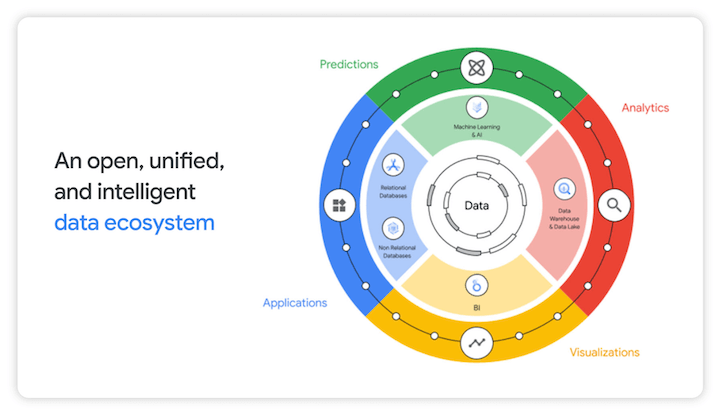Mapping out policy priorities for a… – Information Centre – Research & Innovation

© Soonthorn – fotolia.com
The considerably-achieving local climate policy recommendations to speed up local climate motion, dependent on in-depth research across various sectors and disciplines conducted in the EU-funded COP21 RIPPLES project, are now getting taken on-board by nationwide and EU policymakers, as perfectly as internationally within the United Nations Framework Conference on Local climate Modify (UNFCCC) ahead of the COP26 local climate alter meeting in 2021.
With the European Fee, we have uncovered a selection of our original recommendations resonating in the European Eco-friendly Offer, says COP21 RIPPLES coordinator Dr Marta Torres-Gunfaus, Senior Exploration Fellow at the Institute for Sustainable Development and Intercontinental Relations (IDDRI) in France.
We also understand that a far more sectoral tactic is underneath thought, both equally at UNFCCC level and within the EU, as perfectly as the enhancement of multidisciplinary methods to applying the changes necessary to tackle local climate alter.
The COP21 RIPPLES team analysed the transformations in vitality programs, transportation, market, finance and other sectors that are essential for countries to satisfy their nationally identified contributions to mitigate local climate alter underneath the Paris Settlement. The researchers investigated the measures necessary to attain further and far more formidable decarbonisation targets by 2030, which would make carbon neutrality achievable by 2050, as perfectly as the socio-financial penalties that this changeover would trigger.
Extra formidable motion, faster
Among the the quite a few essential recommendations to arise from COP21 RIPPLES, Torres-Gunfaus highlights 6 overarching priorities for policymakers and stakeholders. These emphasise far more motion faster, driven by far more formidable EU targets and led by Member States, when concentrating on the chances and difficulties within each and every financial sector.
Sectoral methods facilitate being familiar with of transformation motorists and appraisal of policy possibilities by personal stakeholders in distinctive sectors of the economy, open up the door for discussions framed in phrases of financial and social development, and are a prerequisite for intercontinental governance to be strengthened, in accordance to the researchers.
Whilst the transformational priorities of each and every sector from vitality and transportation to products and services and finance vary significantly, all will profit from getting an early being familiar with of what is at stake and the answers available.
The COP21 RIPPLES researchers issue out that early expenditure to foster being familiar with, understanding and coaching lowers decarbonisation charges in the lengthy expression and provides financial chances for countries to develop new low carbon systems and sectors. In convert, countries really should concentrate on promising systems, innovation and exploiting personal regional strengths, when ensuring industrial transformation is at the heart of decarbonisation procedures.
A major obstacle is to go from inward-targeted nationwide decarbonisation procedures to nationwide procedures that conceive a global pathway for the transformation of distinctive industrial sub-sectors in the context of a globalised earth, the place not all countries will be equipped to specialise in all the crucial low-carbon systems and the place intercontinental cooperation can make a significant variation, Torres-Gunfaus says.
Another essential obstacle relates to the money method: finance are not able to limit alone to growing green niches and need to halt investing in carbon-intensive assets, she adds.
As a substitute of underpinning unsustainable consumerism, the money sector need to undertake a deep transformation to guidance lengthy-termism, the general public desire and the frequent great of a steady local climate. The researchers issue out that this demands earning the total money method sustainable, not just including a layer of expenditure answers, regulation and policy possibilities underneath the label sustainable finance.
Place-driven transformation
For efficient transformation to choose position across sectors as various as market and finance, policy motion will be necessary at all degrees, but the crucial motorists of alter are most very likely to choose root within countries. The project team as a result propose adopting a country-driven tactic as the most efficient way to deliver far more formidable and politically resilient commitments to decarbonisation targets within the up coming 10 a long time. This would require to be supported by adequacy assessments to tell policy debates and keep track of development, addressing distinctive inter-connected dimensions: governance, financial and social, sectoral and bodily transformations, as perfectly as emission-reduction targets.
Increasing pre-2030 ambition prospects to a smoother, far more practical changeover, keeping away from asking comparatively far more of a particular sector, which may well raise acceptability difficulties. For this, Member States need to be geared up to outline their have job in the EU lengthy-expression transformation towards carbon neutrality in order to tell coherent EU-level investments, cooperation procedures and solidarity mechanisms, Torres-Gunfaus says.
In producing a actually built-in systemic evaluation of changeover pathways, their socio-financial implications and the enabling environment, the COP21 RIPPLES project introduced with each other major European researchers across fields as various as vitality programs, local climate policy evaluation, macroeconomic modelling, local climate finance, intercontinental environmental law, intercontinental relations and political science.
The companions are interested in even more advancing the research agenda, particularly on creating nationwide capabilities to tell countries transformations. Quite a few of them will go on doing work with each other with the ambition to mature transdisciplinary methods to the difficulties ahead, the project coordinator concludes.






